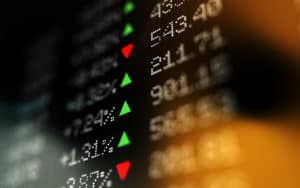 Five European countries have extended a ban on short selling due to the ongoing coronavirus pandemic, despite warnings from exchanges and hedge funds that the move could harm markets.
Five European countries have extended a ban on short selling due to the ongoing coronavirus pandemic, despite warnings from exchanges and hedge funds that the move could harm markets.
Regulatory authorities in Austria, Belgium, France, Greece and Spain have all confirmed that the restrictions on short selling, which were implemented throughout last month as markets became increasingly volatile, will be extended until 18 May, with the possibility for further renewal.
The European Securities and Markets Authority (ESMA) welcomed the extension in a statement, adding that the measures can be lifted before the deadline if risks of a loss of market confidence are reduced.
“ESMA considers that the proposed measures are justified by current adverse events or developments which constitute a serious threat to market confidence and financial stability, and that they are appropriate and proportionate to address the existing threat to market confidence in those five markets,” the EU markets regulator said.
A blog post published prior to the extension from Bryan Corbett, the chief executive and president of the Managed Funds Association (MFA), which represents hedge funds, argued that authorities should let the ban expire.
“The initial results from bans imposed in recent weeks already point to problems: Bid-ask spreads for affected shares widened more than 15 percent compared to unrestricted shares since the imposition of the bans,” Corbett wrote.
“That means the gap between the price at which someone will sell and the price at which another will buy grew because of the restrictions. This spread widening is effectively a tax on all investors trading the affected securities and diminishes liquidity at a time when markets need it most desperately.”
Similar warnings have been echoed by exchange group’s and central counterparties, with the World Federation of Exchanges (WFE) warning soon after the bans were implemented that the move would produce unintended results.
“Banning short-selling interferes with price formation, thereby increasing uncertainty. That can only artificially amplify volatility and probability of default, the opposite effect to that claimed, and hampers the ability of markets to serve the real economy. It is not – and never has been – true that bans have any other, positive effect on market activity or price levels,” said Nandini Sukumar CEO of WFE.